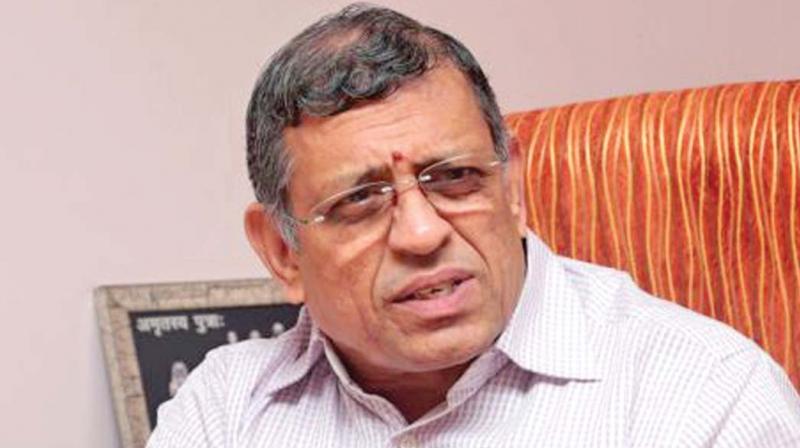Dc explains: Printing notes is RBI's prerogative

S. Gurumurthy, the co-convenor of the Swadeshi Jagaran Manch and a recently-appointed part-time director of RBI, spearheaded a informal campaign against the Reserve Bank of India and its official directors-cum-economists. He had seven prime complaints about the central bank. Deccan Chronicle speaks to Dr Subhanil Chowdhury, assistant professor at Institute of Development Studies, to understand the basis for Mr Gurumurthy’s arguments.
Gurumurthy: The bad loan problem had started in 2008 and peaked in 2014. But the RBI did not act on it in 2008 but imposed curbs in one-go in 2015 affecting banks badly.
Dr Chowdhury: There is no doubt that the NPA problem has started in 2008 and it peaked in 2014. It is wrong to blame the RBI alone because the government too — both the UPA and the NDA — did not come forward to support public sector banks by infusing fresh capital.
Gurumurthy: If the right to print currency was entrusted to the government and not the central bank, the liquidity issues could have been handled better.
Dr Chowdhury: No government prints currency anywhere in the world. It is the prerogative of the central bank. If the government is allowed to print currency at its will, it could print the currency to distribute it to voters whenever it wants to win elections. If this function was taken away from the central bank, then the government should disband the RBI.
Gurumurthy: Monetary expansion (printing new currency) is now the order of the day for deficit financing. The IMF too said that it is better than government borrowing from banks, which does not leave enough funds to lend to private sector.
Dr Chowdhury: While higher expenditure by the government by pooling money from other sources is understandable, printing currency cannot be a solution. If he thinks the government should ignore fiscal deficit rules, then he should advise the government to scrap the Fiscal Responsibility and Budget Management Act, which was enacted during the NDA-1 regime in 2003, for both the Centre as well as the states.
Gurumurthy: India would have fared better if it thought independently ignoring all economic theories like Japanese Prime Minister Shinzo Abe.
Dr Chowdhury: If he wants all economic theories to be ignored, then somebody else should write new text books (having new economic principles) for the government to follow.
Gurumurthy: Capital adequacy ratio that the RBI mandates banks to maintain is high and should be lowered.
Dr Chowdhury: There is a suggestion that public sector banks and private banks should not have same capital requirements as PSBs have an added responsibility of social development. The government and the RBI have a dialogue on it and decide what is the optimal capital that the banks need to maintain. The RBI should also relax its Prompt Corrective Action regime as it froze lending by 11 banks.
Gurumurthy: The RBI’s capital should be recalibrated as no central bank holds so much capital.
Dr Chowdhury: The government and the RBI should together decide what is the right level of capital. But if the reports of the government’s attempt to access a part of it is true, then it is wrong because the RBI’s capital is not cash form to be transferred to the government. The value of the RBI’s capital has increased because of the appreciation of foreign currency and gold and depreciation of the rupee. So the increase is merely notional.
Gurumurthy: Demonetisation has saved the country from the United States Subprime Lending like crisis.
Dr Chowdhury: There is no basis for this argument.

